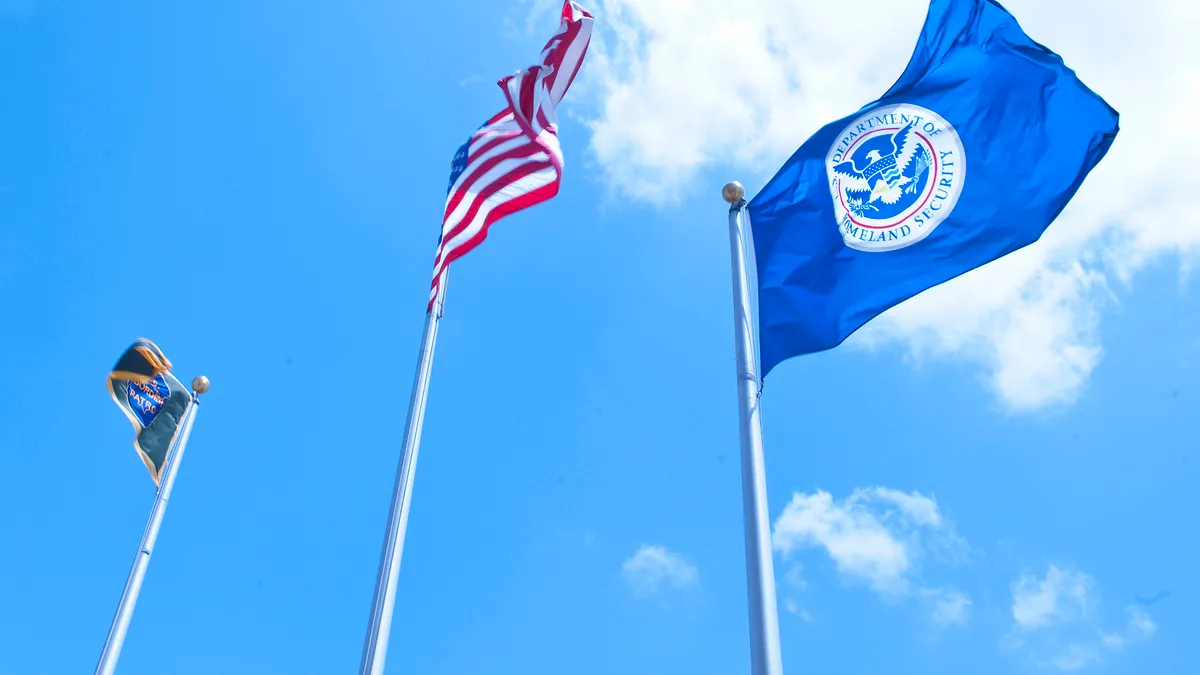Dive Brief:
- The U.S. Department of Labor (DOL) and Department of Homeland Security (DHS) tightened restrictions on the H-1B visa program in interim final regulations published Oct. 8.
- The changes include higher minimum pay for H-1B workers, a narrowed scope of degrees eligible for the program and a shorter term length of one year for certain visa holders. DOL specified the new wages require that entry-level workers be paid at the 45th percentile of the profession’s distribution, up from the 17th percentile under previous regulations. The requirement for the highest tier of workers accepted through this program would rise to the 95th percentile, from the 67th percentile.
- The new DHS rule redefines "specialty occupations" for the program, adding a requirement for the applicant to have a degree specifically in the field in which they are applying for the work visa. It also outlined that H-1B workers hired through a third-party firm will receive one-year authorizations, instead of the typical three-year visa.
Dive Insight:
Changes to the H-1B visa program often have an outsized impact in the technology industry, as nearly two-thirds of H-1B visa requests are typically for workers in STEM, according to the American Immigration Council.
DOL's rule takes effect immediately, "giving employers no lead time to adjust course or strategize to meet the newly required higher wage levels that they will be obligated to pay H-1B workers," Kerri-Ann Griggs, attorney at Alston & Bird, said in an email.
"This will impact not only companies seeking to hire H-1B workers for the first time, but companies that already have H-1B employees, some of whom have been working for them for over 5-6 or more years," Griggs said.
The DHS mandate takes effect Dec. 7. Degree requirements are "even more restrictive and a severe blow to the information technology world," said Griggs, pointing out that general engineering degrees and quantitative degrees would not be satisfactory for a software developer position.
The Trump Administration has been working to tighten immigration policy and the H-1B program since taking over in 2017, believing that in its current state American immigration policy is harmful to domestic workers. USCIS data shows an increase in the rejection rate of H-1B applications over the past three years.
Throughout 2020, the administration cited the pandemic to support further tightening of the program. It announced restrictions on immigration in April and in June it temporarily suspended the H-1B program. Over the past few months, it tried to increase fees for employers interested in applying for H-1Bs and proposed the terms that led to this updated regulation.
Talent consultants, researchers and employment attorneys that spoke with HR Dive said these policies and bend towards restriction have negatively impacted employers.
"The timing of the DOL announcement suggests that it is focused more on next month’s election than on sound immigration policy needed to support U.S. businesses," Eileen Scofield, attorney at Alston & Bird, said in an email.
Opponents of the administration's efforts include the U.S. Chamber of Commerce. Business groups including the Chamber sued DHS and the U.S. Department of State in July, alleging that the federal government's restrictions on work visas are unlawful.
Additionally, the rules were released without a proposal and notice and comment period. "The fact that there will be no opportunity for public commentary prior to the effective date of the DOL interim rule is very alarming, given the scope of its impact," Griggs said.













